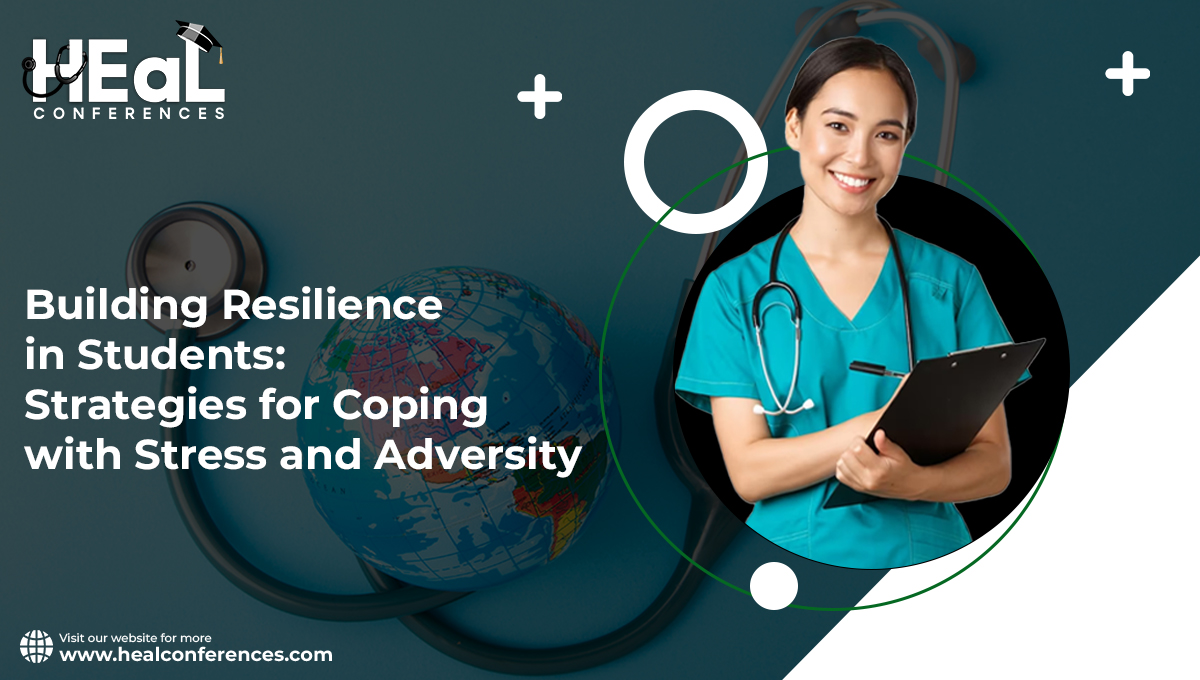Students frequently encounter a wide range of stress and adversities on their educational journey. Learning to deal with these obstacles is important for their future success and general well-being. Developing kids’ resilience is an important ability that can help them deal with all kinds of life hardships, ultimately improving their mental health, academic performance, and quality of life. Attending many global healthcare events will also help them improve their resilience.
In this blog, we’ll look at all kinds of methods that help children develop resilience to succeed despite life’s obstacles.
The Secret To Thrive Resilience Amid Challenges
Resilience is overcoming obstacles, adjusting to change, and flourishing under pressure. It is a combination of abilities and attitudes that can be cultivated over time rather than a fixed attribute. Learning how to react to stress and adversity in a healthy and positive way is the key to developing resilience. Sometimes, taking part in global healthcare events encourages the student with many proven innovative strategies to cope with their stress and adversity in a better way.
Unleashing The Power Of Resilience: Why It Matters?
More than simply a catchphrase, resilience is an essential life trait that is crucial to a student’s academic and personal success. Here is why it’s important:
Future Success: Employers greatly respect resilience as a quality that is necessary for career success in any field. It teaches students to gracefully face pressure, obstacles, and challenges on the job.
Emotional Well-being: Resilience aids pupils in managing stress, anxiety, and other emotional difficulties. It develops emotional intelligence so that they can recognize and control their emotions with greater efficiency.
Adaptability: It is essential in a world that is changing quickly. Students who are resilient can accept change, remain open to new experiences, and bounce back from failures fast. Many health conferences like ours often share several thoughts about proven strategies for better adaptability.
Academic Success: Resilient Students are better able to manage academic pressures. They see difficulties as opportunities for growth and learning to improve their academic achievement.
Problem-Solving: Those who are resilient are adept at solving problems. They tackle challenges with a can-do mindset, deconstructing issues into smaller, more manageable chunks and looking for answers.
Proven Strategies: Techniques For Helping Students Develop Resilience
- Encourage a growth mindset in students. This will enable them to see obstacles as opportunities for progress rather than dangers.
- Teaching students problem-solving techniques will help them to divide difficult problems into more manageable chunks.
- Teach the students to control their extreme emotions and empathy. This will help them better comprehend the stress and navigate social situations.
- Stress the value of self-care practices like getting enough sleep, eating a balanced diet, exercising frequently, and practicing mindfulness or meditation.
- Encourage children to confront negative thought patterns to promote positive thinking and help them have a good attitude in life.
- Provide them with examples of people who overcame hardship to succeed.
- Establish a setting in the classroom or school that promotes a feeling of community and support.
- Encourage them to prioritize improvement over perfection. Expectations that are too high might cause disappointment and added stress.
- Teach them efficient organizational and time management techniques. Task prioritization and planning help people feel less stressed and more confident.
A crucial part of students’ growth is the development of their resilience. By giving them the abilities and dispositions to handle stress and hardship, we enable them to navigate the obstacles of life successfully. Joining our global education conferences will greatly help parents, students, and professionals who want to develop new strategies to help students cope better with stress and adversity!






